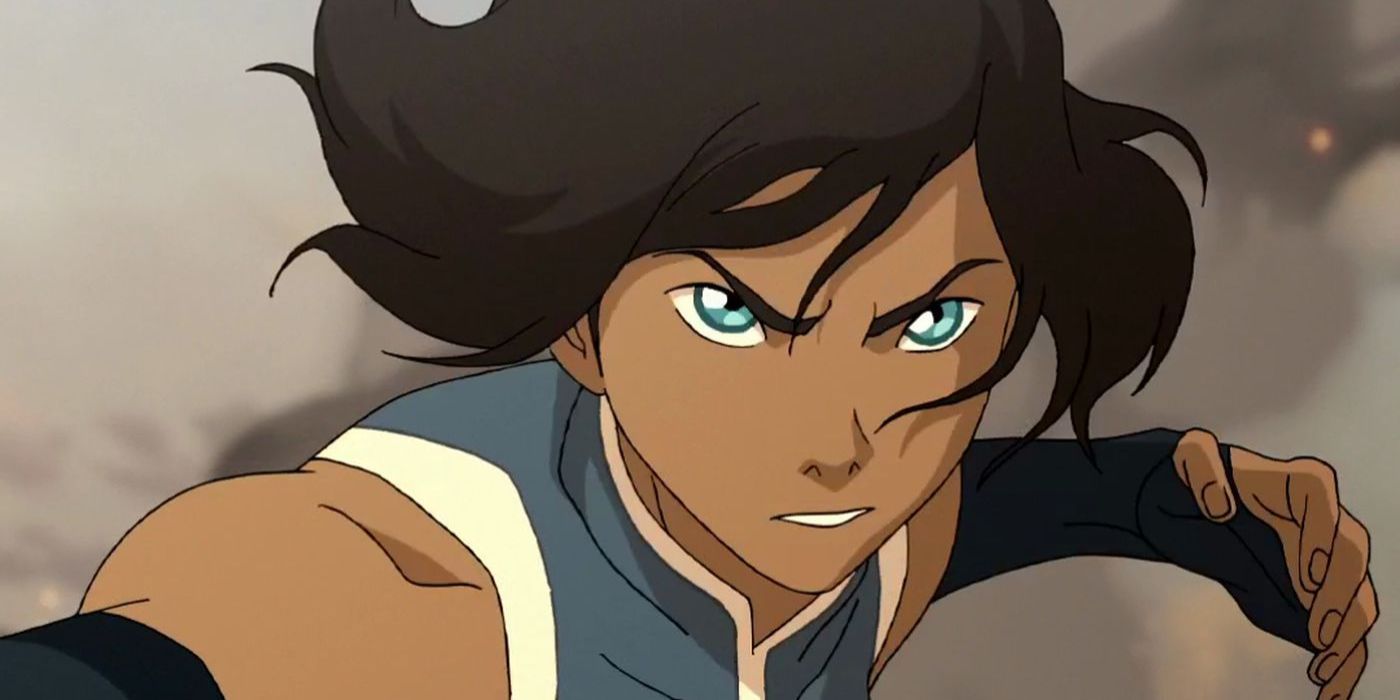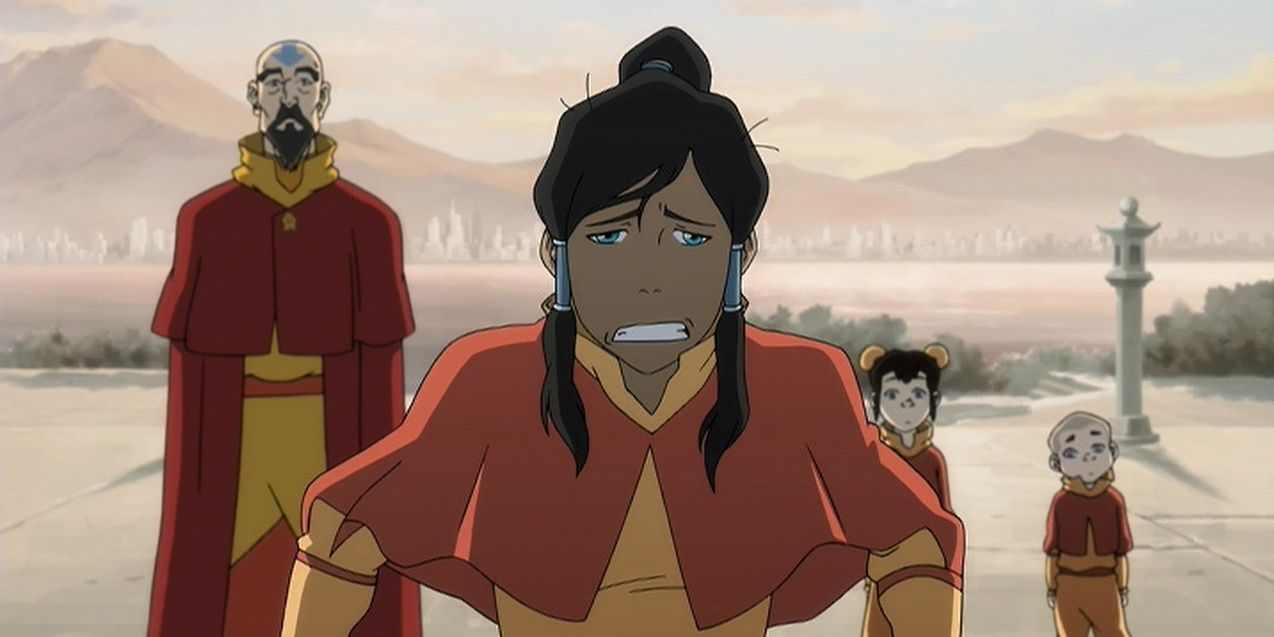While many have come to terms with Korra's character by now, during the Legend of Korra's first season, she was pretty widely disliked for being whiny and obnoxious. However, those traits aren't inherently a bad thing about her character. Korra being somewhat irritating as an Indigenous female protagonist is great because it paves the way for characters like her to have more diverse characterization.
People of colour are sparsely represented and even then are often, unfortunately, subjected to stereotypes and tokenism, more so if they're female. But Korra was given space to be herself, to show her flaws and grow as a person. Even if her character did come as a shock following The Last Airbender's Aang, there really should be more space for characters like Korra to be loud and upfront in their own stories -- to have actual personalities, even if they're a bit grating to those not used to seeing BIWOC like that on screen.
Jumping from a fun-loving nomad to a temperamental teenager was a big, jarring shift at first for fans, which likely contributed to much of that early dislike targeted at Korra. In many ways, she's presented as Aang's opposite, starting off her series as impatient, brash and hot-headed, excelling in the physical aspects of being the Avatar. And, unlike her predecessor, she loved being the Avatar, though eventually learned the burden that comes with the title. Aang was cheerful, passive and adventurous, excelling in the spiritual aspects of his role. He never wanted to be the Avatar, but had to come to terms with it to end the war. While both characters had great development, Korra's gradually touched on each of her flaws throughout all 4 seasons.
In Book 1, Korra's arrogant nature can be traced back to her childhood, when she learns that she can bend 3 out of the 4 elements with no training. Unlike most Avatars, she discovered her role very early in life and was excited to -- essentially -- be the "chosen one." Compared to everyone else, she thought herself exceptional and different, something many teenagers strive to be, but Korra actually was. Eventually, Korra's role as Avatar defined her entire being.
This plays into her arrogance as she grows eager to take down bad guys and establish a reputation for herself in Republic City. Much of Korra's character arc in this season centers around her trying to learn airbending, an element deeply rooted in spiritualism, which she struggles with. Once she loses her bending, the very thing she prided herself on, she is left feeling defeated. Korra is only able to unlock airbending when she chooses to fight for someone other than herself.
Despite these revelations, in Book 2 Korra is still stubborn in her mentality and abuses her power, like when she activates the Avatar state to win a race. But by the end, she once again loses her bending, albeit temporarily in the form of losing Raava. Korra also has her connection to the past Avatars severed, meaning that her predecessors cannot come to her rescue again like they did at the end of Book 1. The season ends with her attaining a newfound respect for her powers.
In Book 3, Zaheer's goal was to rid the world of all leaders, including the Avatar, as he believed that such figures hindered true freedom. And Korra agreed with Zaheer to an extent, her experiences up to that point leading her to believe that her existence did more harm than good. In this season, she grapples with the consequences to her actions. Opening the spirit portal brought the Airbenders back, but it also resurrected the Red Lotus. Despite her good intentions, Korra didn't think her decision through and unintentionally caused a lot of suffering as the world entered in a new era.
Book 4 has a strong emphasis on Korra's mentality as she disappears for 3 years trying to rediscover her purpose. The season begins with her believing that the world truly doesn't need an Avatar and is content with leaving things to Kuvira. Later, Korra realizes that her responsibility as the Avatar comes from who she is and what she fights for rather than her bending prowess. She learns that being the Avatar is only a part of who she is and spends the rest of the series discovering who she is apart from that.
What makes Korra so great are her flaws. She makes mistakes, which sometimes leads to more mistakes. She makes decisions with good intentions, but learns that even the best of intentions can have consequences. Her development has a lot more bumps in the road than Aang's, but comparing her character from book 1 to book 4, it becomes clear that she is not the same impatient, hot-headed Avatar as she used to be. She has moments where she is strong, but also moments where she is vulnerable.
She regresses with new trauma or when posed with new challenges as she then needs to find a new way to overcome them. Korra's "annoying" traits help her to stand apart and make her a welcome departure from typical BIWOC heroines. But they also set her up to eventually become something more. Even before she grows out of her immaturity, Korra is a devoted, hardworking and loyal person, albeit one who holds her role as Avatar too close. But it's these complexities and the story's willingness to show Korra in an unflattering light that make her journey of self-discovery a compelling one. Even when she's not entirely sure of who she is or wants to be, Korra is a heroine with the rare chance to be wholly herself, wholly a person. And fans are gifted with a great arc because of that.




